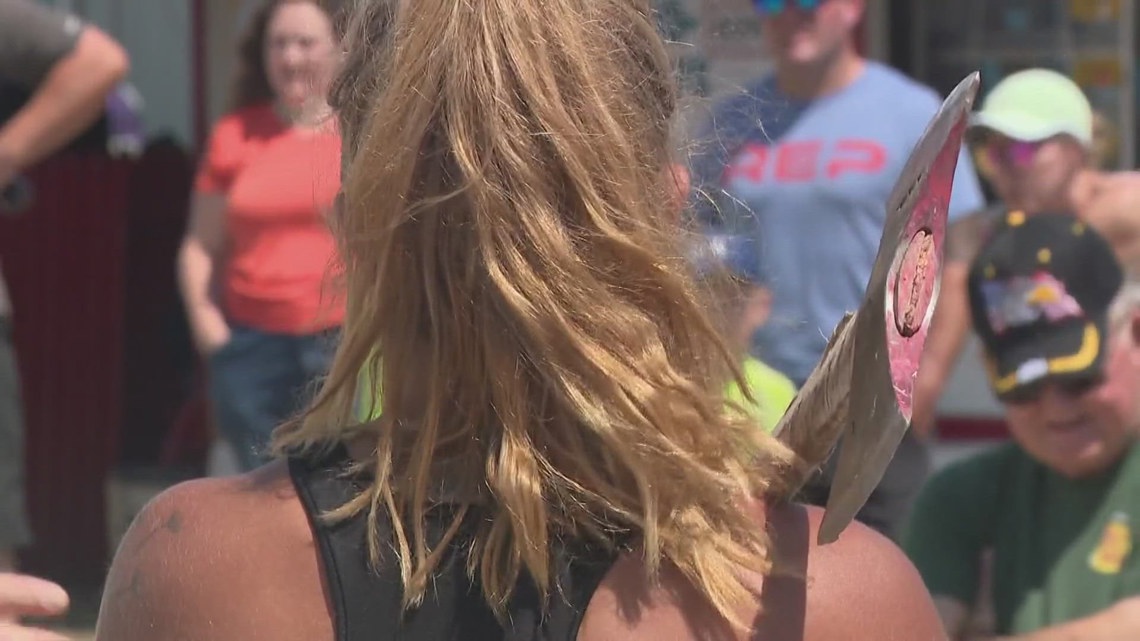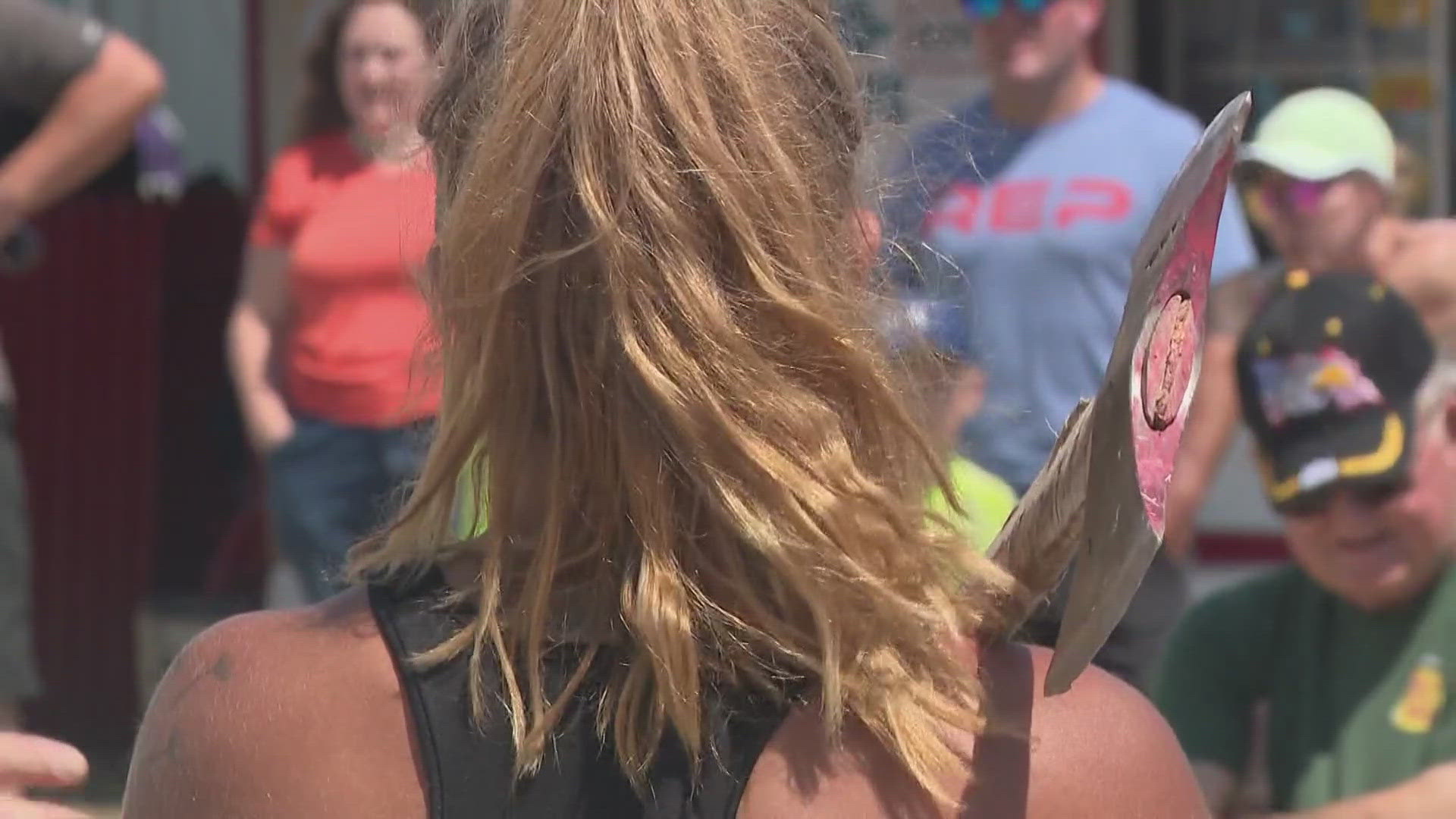TOPSHAM, Maine — Maine's woods have a deep history of logging. The industry provides some 20,000 jobs and billions of dollars to the state's economy, according to the Maine Forest Service.
That heritage and back-breaking work is honored through lumberjack competitions all over the world. Alissa Wetherbee is a three-time World Champion in the sport. But seeing how few women were involved in it inspired her to start up the Axe Women Loggers of Maine.
The Axe Women compete all over the country, and they host shows all over New England. We caught up with them at one of three shows planned for the day at the Topsham Fair.
"It's a competition, so the ladies we have here are world champions, collegiate champions, world-record holders. It's not a scripted show at all," Alissa told us.
In fact, the shows are a race to chop, saw, and toss as quickly and as accurately as possible, something Alissa said is a bit of an ode to the work done by hand by loggers before them.
"It's a sport that grew from an actual job in the woods," Alissa said. "We're chopping logs because that's how they used to do it to bring manageable size logs out of the forest. We're using the old-fashioned crosscut saws. There's so much history involved in this."
Alissa now has teammates all over the country, even the world, with more than 40 women joining on.
"We have law-enforcement, we have doctors, we have lawyers, we have scientists, we have veterinarians, and we have such a wide range of ages. We have college ladies, and we have grandmas," Alissa said.
"Spending time with women who are strong and competitive and who also support each other in a sport is just really incredible," teammate Ashley Severy told us.
She and Hanna Severy said they weren't expecting just how much that support would stem into their lives though.
The sport has pushed Ashley to lose more than 100 pounds and become not only physically healthier but also mentally.
"It changed my life, for sure," Ashley said.


In her blended family, Hanna has five kids, including twin 4-year-olds. It's a busy life, but she tries to make this sport a priority because of how healthy it is for her and what she wants her kids to see when they watch her compete.
"I hope they see— I don't know, I don't wanna cry," she said, figuring out the words she wanted to say. "I want them to see they can be empowered and find things they love. Don't stop. You can do it no matter how busy your schedule is or what's going on, your age or weight, your height—none of it matters so long as you are determined in yourself to go through and do it."
In fact, our conversation with all three women was so inspiring, my photographer Scout and I decided to give it a shot. I fired up a chainsaw and cut a few pieces of pine; Scout picked up an axe and tossed it at a target, just narrowly missing.
We also learned about a Pathfinders Program through the Axe Women, an internship of sorts if you want to try your hand at the sport without fully committing.
The sport is growing for women, despite women having a part in it decades ago, as lumberjills.
"Here in the U.S., we had Rosie the Riveter. She was the lady that went in and built airplanes," Alissa explained. "In a lot of other countries, and also here in the U.S., we had the whole forestry aspect. All of those men went to war and other jobs and the ladies stepped up, and they went out because they still needed to be providing all of that timber for the war effort, if nothing else."
Yet until last year, after a campaign sparked by Alissa, you couldn't find the term "lumberjill" in the Oxford English Dictionary. You can now. She's still pushing for
Merriam-Webster to add the term to their dictionary, as it was widely used in both world wars.
In the meantime, she and her teammates are happy to be a part of the movement getting more female representation at shows and competitions.
"We did an Axe Women show, and one of the little girls said to me, 'I want to be an Axe Woman someday.' And I thought I was going to cry on the spot. That was one of the best moments I've had competing ever."
Learn more about the Axe Women and where to find them next here.

